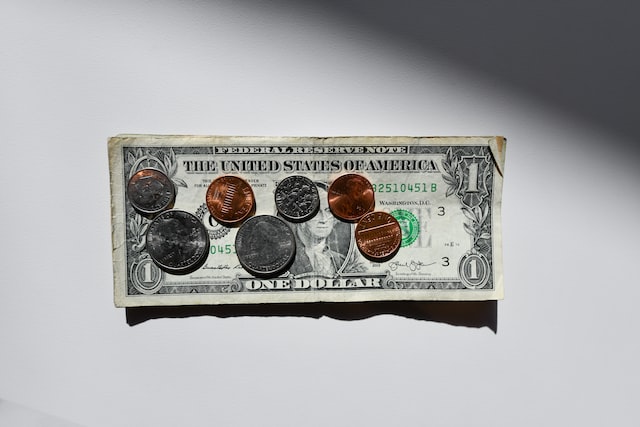Almost everyone I know has experienced financial hardships one way or another, and with the pandemic going on, it’s got to be one of the bigger issues that people have, which is understandable and nothing to be ashamed of.
One of the most important things when it comes to preparing for financial troubles, is learning how to budget. I like to think that I’ve got budgeting down pat, but there have been times where something comes up unexpectedly and I learn that we really don’t have that much money saved for emergencies, which has happened more than once or twice. On one instance, one of us had a health issue that required a lot of money, and it just so happened that we were strapped for cash at the time. Seeing as this was a time sensitive issue, we had to come up with something fast.
Luckily, a close friend of ours suggested we take a cash advance, and while I’ve heard about it in the past, I’ve never really had prior experience with getting one. So I did my research before we got one. Here’s some of the information that everyone should know.
WHAT IT IS AND HOW IT WORKS
We should start by defining what cash advances are. Simply put, Cash advances are an easy way to get funding fast, they are basically short term loans that are usually offered by banks, or other lenders. Alternatively, your credit card issuer can also provide cash advances which allows you to withdraw a certain amount of cash. It’s worth noting that taking out cash advances means that it comes with its own fees and interest rates.
How exactly do cash advances work? It’s basically the same as borrowing money. The only difference being that cash advances generally provide you with cash a lot quicker than other types of loans, which is part of the appeal of cash advances.
TYPES OF CASH ADVANCES
- Credit Cards Cash Advances
Cash advances mainly come from credit cards, and it’s what most people associate it with. When you take advances out of credit cards, there is always a limit to how much you can take out, usually half of your purchase limit.
With credit cards, the interest rates are often higher, meaning you will always pay more than what you initially take. Additionally, you should be aware that some credit card issuers will impose transaction fees.
You might have seen Payday loans and Cash advances used interchangeably, but they do have some differences. True to its name, Payday loans are short term loans that require you to pay back by your next payday. Conversely, the amount of money the lender can extend is based on how much you earn.
When compared to Credit card cash advances, payday loans come with higher interest fees attached to it.
If you are a small business owner, and you’re having some financial difficulties, then a Business Cash Advance (or alternatively, a Merchant Cash Advance) is what you’re looking for. These are perfect if you’re looking to cover immediate expenses. In return for the lent cash, the lender requires you to allot a certain percentage of your monthly sales until the initial loan is paid off.
CASH ADVANCE PROS AND CONS
PROS
The best thing about cash advances is that it’s convenient and quick. Everyone can take out a cash advance, as long as you can quickly pay it back, so you can minimize racking up the interest fees.Â
There are multiple ways to get a cash advance, you can just choose which is the most convenient to you. You can withdraw them from an ATM, and some issuers will even let you withdraw cash advances in person, as well as convenience checks.
You can get cash quickly with cash advances, they’re especially helpful for small purchases, or for any other concerns. You can’t always tell when there’s going to be an emergency, and sometimes you don’t always have cash on you at all times. They can be a lifesaver at times.
- Doesn’t Affect your Credit Score
Most of the time, your cash advances will only show up in your bank statement as cash withdrawals, and not as loans. On the other hand, If you have a habit of taking out cash advances, but are not good at paying it back quickly, you can rack up some debt, which in turn will really hurt your credit score.
CONS
In the case of Credit Card Cash Advances, you can always expect for there to be charges when taking money out, this may be a cash advance fee, which could go anywhere from 2% – 5% of the withdrawal, and there’s also some withdrawal fees when taking cash advances from banks. They may not be that substantial, but they certainly do add up.
A drawback that turns most people off from making cash advances are the high interest fees. On average, they can go anywhere from 22% to 30%, depending on your location, of course.
In addition to the previous point, there is no interest-free grace period when it comes to cash advances, which means that you are starting to be charged with the interest rate the moment that you take out that advance, so keep that in mind.
THE BOTTOM LINE
The idea of using cash advances, while definitely exciting, you should still give it some thought on what you use it for. Before you dive in and get one, make sure you do your research and weigh out all your pros and cons. If you can, try to only use it in case of extreme emergencies.
If you think Cash advances aren’t your thing, there are always other alternatives to get funds quickly. It’s a good idea to think of your other options before taking out a cash advance, but if you do, make sure that you can pay it off quickly.


